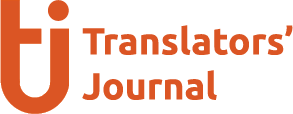
Without trust, even the most skilled translator can struggle to secure repeat business. But how do you build trust with clients—especially in a competitive industry?
This guide covers essential strategies to earn and maintain trust, ensuring long-term success and a steady stream of loyal clients.
Why Trust Matters in Freelance Translation Business
A trusted translator is a valuable asset to any client. When clients feel secure about your work quality, reliability, and professionalism, they are more likely to return for future projects and refer your services to others. Trust also allows you to negotiate better rates, as clients will be willing to pay more for reliability and quality assurance.
Here are the key benefits of trust based client relationships:
- Securing Long-Term Clients
Trust can transform one-time projects into long-term partnerships, ensuring financial stability. When clients trust your work, they’re more likely to choose you for ongoing projects. - Boosting Referrals
A client who trusts you is more likely to recommend your services to others. Word-of-mouth referrals can significantly increase your visibility and reputation. - Enhancing Job Satisfaction
Trust is a two-way street. Clients who trust you will also be easier to work with, and you will find the collaboration more enjoyable and rewarding. - Commanding Higher Rates
When clients trust that you’ll consistently deliver high-quality work, they are more likely to pay higher rates. They understand that reliability and quality come at a premium.
Practical Tips for Building Trust with Clients
1. Meet Deadlines Consistently
Timeliness is crucial in the freelance world. When you commit to a deadline, you’re not just promising to deliver work; you’re promising reliability and professionalism. Missing deadlines can erode client trust quickly, so it’s important to set realistic expectations and always meet them.
- Set Realistic Deadlines
Always factor in some buffer time to accommodate revisions, technical issues, or unexpected challenges. Be honest about how much time you’ll need. - Communicate Any Delays Early
If you foresee a delay, notify your client as soon as possible. Clients will appreciate your transparency and are more likely to trust you to handle the situation professionally. - Use Project Management Tools
Tools like Trello, Asana, or Monday.com can help you stay organized and track deadlines, ensuring nothing slips through the cracks.
2. Maintain High-Quality Standards
Your clients rely on your expertise to accurately convey their messages. Ensuring the quality of your work is non-negotiable.
- Conduct Thorough Research
To avoid mistakes, always research unfamiliar topics thoroughly. Accurate translations depend on understanding the subject matter. - Proofread and Use Quality Assurance Tools
Even experienced translators can overlook errors. Proofread your work meticulously, and use CAT tools and glossaries to ensure consistency across larger projects. - Stay Consistent
When working on ongoing projects or projects with similar content, make sure your translations maintain the same tone and style. Using tools like SDL Trados or MemoQ can help.
3. Communicate Clearly and Professionally
Effective communication is essential in any client relationship, and the translation industry is no different.
- Be Responsive
Reply to emails or messages promptly. Even if you need time to get back with an answer, let your clients know you’ve received their message and when they can expect a response. - Tailor Your Communication Style
Different clients may have different preferences when it comes to communication. Be professional, but adapt your tone to match the client’s style. Some clients may appreciate a more formal tone, while others may prefer a casual approach. - Avoid Jargon
While translation is a specialized field, always aim for clear, straightforward language when communicating with clients. Avoid using excessive jargon that might confuse them.
4. Be Honest and Transparent
Honesty is the cornerstone of trust. Your clients need to know they can rely on you, even if challenges arise during the project.
- Set Realistic Expectations
Be upfront about your abilities and capacity. If a project is outside your area of expertise, let your client know and suggest solutions, such as recommending another translator. - Own Up to Mistakes
No one is perfect. If you make a mistake, own up to it immediately and take steps to correct it. Offer a solution and let the client know you’re committed to making it right. - Keep Clients Updated
If there are delays or issues, communicate them early and clearly. Keeping clients in the loop will prevent misunderstandings and demonstrate your professionalism.
5. Maintain Confidentiality and Ethical Standards
In many translation fields—especially in legal, medical, and corporate sectors—confidentiality is a top concern. Clients trust that their sensitive information will remain protected.
- Respect Non-Disclosure Agreements (NDAs)
Always adhere to the terms of any NDA you sign. If you’re handling confidential information, treat it with the highest level of discretion. - Follow Industry Ethics
Keep your work ethical by avoiding conflicts of interest. This not only protects your clients but also bolsters your professional reputation. - Protect Client Data
Implement measures to protect client data, both digitally and physically. This assures clients that their information is safe with you.
6. Build Long-Term Relationships
Client trust doesn’t stop once the project is completed. Building lasting relationships is key to ensuring a steady stream of work and fostering loyalty.
- Follow Up After Project Completion
A simple follow-up email after completing a project can go a long way in reinforcing your professionalism and keeping the lines of communication open. - Show Appreciation for Repeat Clients
Recognize and thank clients who come back to you for repeat work. A small gesture, like offering a discount or a handwritten thank-you note, can solidify your relationship. - Offer Value-Added Services
Going above and beyond can help you stand out. Consider offering additional services such as glossary creation, terminology management, or proofreading, to add extra value to your clients.
FAQ: Building Trust as a Freelance Translator
1. How can I build trust with a new client if I don’t have a long portfolio?
Building trust with a new client can be challenging without an extensive portfolio, but it’s not impossible. Here are a few strategies:
- Offer a trial project at a reduced rate or as a demonstration of your skills. This allows the client to evaluate your work and gives you the opportunity to build trust.
- Highlight relevant experience even if it’s from smaller projects or different sectors. Explain how your skills align with the client’s needs.
- Ask for testimonials from past clients or colleagues that can vouch for your professionalism and quality.
2. What should I do if I miss a deadline?
While deadlines are critical, mistakes happen. The key is to handle the situation proactively:
- Notify the client as soon as possible if you anticipate missing a deadline.
- Provide an updated timeline with realistic adjustments.
- Apologize and explain, but avoid making excuses—clients value transparency and solutions more than blame-shifting.
- Offer compensation if necessary (e.g., a discount or additional services) to demonstrate your commitment to maintaining a strong relationship.
3. How do I maintain high-quality standards consistently?
Maintaining high quality over time is essential for building trust. To ensure consistent standards:
- Develop a personal quality checklist to ensure your work always meets your own high standards, including thorough proofreading and cross-checking.
- Invest in CAT tools (e.g., SDL Trados, MemoQ) to ensure consistency, especially for larger projects or repeated work.
- Review and update your knowledge regularly—stay current with industry trends, translation techniques, and terminology to maintain your expertise.
4. Is it okay to communicate with clients outside of work hours?
While it’s essential to be available for urgent queries, setting clear boundaries is also necessary for maintaining a healthy work-life balance.
- Discuss availability upfront with clients. Let them know when you’re available for urgent matters and when you might need some time off.
- Use automated replies or project management tools to manage expectations on response times.
- Clients appreciate responsiveness but also respect a healthy work-life balance.
5. How do I handle a difficult client?
Difficult clients can test your patience, but handling them professionally will strengthen your reputation:
- Stay calm and professional no matter how the client behaves. Keep communication clear and respectful.
- Address issues directly—don’t shy away from discussing problems or concerns that arise. It’s better to clarify things than to let misunderstandings fester.
- Set boundaries if a client is being unreasonable or overly demanding. Be firm but polite about your limits and expectations.
6. What if I don’t have experience in a certain translation niche?
If you’re asked to work in a niche you’re unfamiliar with:
- Be honest about your experience level, but express your eagerness to take on the challenge.
- Offer to do additional research or work with experts to ensure the quality of your translations.
- Consider expanding your expertise through online courses or self-study. Specializing in a niche can help you build credibility and open up more opportunities.
7. How can I ask for referrals without being too pushy?
Asking for referrals should feel natural, not forced. Here’s how you can do it:
- At the end of a successful project, express your gratitude and ask if they know anyone else who might benefit from your services.
- Offer incentives (e.g., a discount on the next project) for successful referrals.
- Make it easy for them—provide a link to your website or a brief note they can forward to their contacts.
8. How can I differentiate myself from other freelance translators?
To stand out, focus on creating a personal brand that highlights your unique strengths:
- Develop a niche—specializing in a particular field, such as legal or medical translation, can set you apart.
- Showcase your personality—clients want to work with someone they feel comfortable with. Let your professionalism and personality shine through in your communications.
- Go the extra mile—offer services that others may not, such as creating glossaries, providing editing services, or offering fast turnaround times.
9. How do I handle non-disclosure agreements (NDAs) and confidentiality?
Confidentiality is critical in many translation fields. To maintain trust:
- Always sign NDAs when required and follow them strictly.
- Avoid discussing sensitive information related to client projects with anyone, even casually.
Use secure methods for sharing files (e.g., encrypted email, secure cloud storage).



